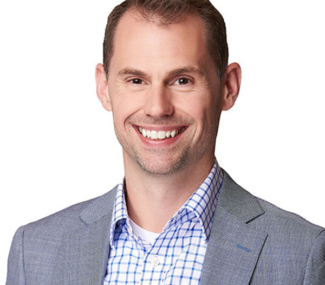The Upside of Crisis Lies in the “What If”

COVID-19 and seeing over the horizon
Pretty much everywhere you look, read, or listen, stories of advancement are met with reasons to think the sky is falling. The global battle against COVID-19 has many organizations scrambling to adapt. Those that are able began working from home. Companies are trying their best to keep their employees well cared for and safe through a period of isolation while scenario planning the immediate impact of revenue losses (we recently discussed concrete ways to plan for this uncertainty and manage resilience in a webinar). The government and our Department of Defense are trying to work through a new normal in which value and outcomes of work are not measured by attendance and hands-on management approaches. However, disruption also demands that we pause and focus over the horizon.
Sometimes facing the negative head on leads us to a path of innovation and illuminates the means to overcome adversity. This is resilience.
Survival and resilience require innovating around disruption
Knowledge is our common global currency. Trading knowledge is our “stock exchange.” It’s fast and virtually free-flowing. And it is rife with the potential for disruption. Survival and resilience mean innovating around all the potential disruptions. We must trade the current regimen of countering risk for a new approach. The beauty of knowledge in today’s technology-advanced society is that we can share it in so many ways: calls, texts, FaceTime, Teams, Zoom, books, and blogs.
The recent developments further the argument that enterprises must put the resources in place to prepare for threats they may not be able to pinpoint until an event has happened. These structures and scenario planning are integral to becoming nimble enough to face and adapt to disruptions and risks as quickly as they become evident. It is how you build a culture of resilience.
COVID-19 underscores the need to prepare for uncertainty
There’s an old adage that says, “forewarned is forearmed.” As we look at the horizon and the potential for storm clouds and silver linings, the question arises: Are our government and enterprise organizations absolutely prepared? As the COVID-19 pandemic showed us, the answer is absolutely not. But we believe it is possible to turn these risks into opportunities to build strength and resilience for the organizations and for society as a whole.
Toffler Associates helps organizations prepare for an uncertain future
Through structured exercises like Alternate Futures® scenario planning or wargaming, organizations can delve deep into a range of utopian and dystopian possibilities. The importance of these activities is to ask What if?, Imagine if…, why?, and how? in a creative and collaborative environment. These questions can extrapolate an issue or concept into a larger context and begin to align systems and resources against known and potential positive and negative cases. This allows organizations to better consider how to use their resources to build greater agility and resilience should an occasion arise that demands an appropriate response.
The exercise can generate positive systemic changes and opportunities for creativity, innovation, and new growth. Some of the opportunities we see in the COVID-19 crisis include increases in food delivery leading to demand for tamper-proof delivery packaging, an increased need for chain-of-custody confirmation and validation, and new technologies for tracking throughout the supply chain. This simple example can highlight where innovation is required and what capabilities can deliver a solution.
We must extend our questions of what if, imagine if, why, and how beyond the familiar scenarios to open our creative mind, expand our risk lens, and begin to chase new opportunities.
This global disruption caused by COVID-19 reminds us of the importance of being prepared and reinforces the idea that, as leaders, we have to stop and remember that we have reached this point because we are a collection of innovative, collaborative, visionary thinkers. We will be resilient.
Prudence is required. We need to find solutions to questions that have yet to be asked and then consider every possible alternative. Embracing a wider way of thinking and a willingness to go deeper is an opportunity to get smarter and more resilient.
Toffler Associates believes in the importance of standing in the future. We think that hope is quite possibly the strongest undercurrent of all to a disruptive environment. Engage with us to discuss the challenges and how we can collectively navigate through disruption, achieve resilience, and create a legacy for the future of our organizations.
- Categories
- Futures and Foresight
- Workforce of the Future



 About the Authors
About the Authors